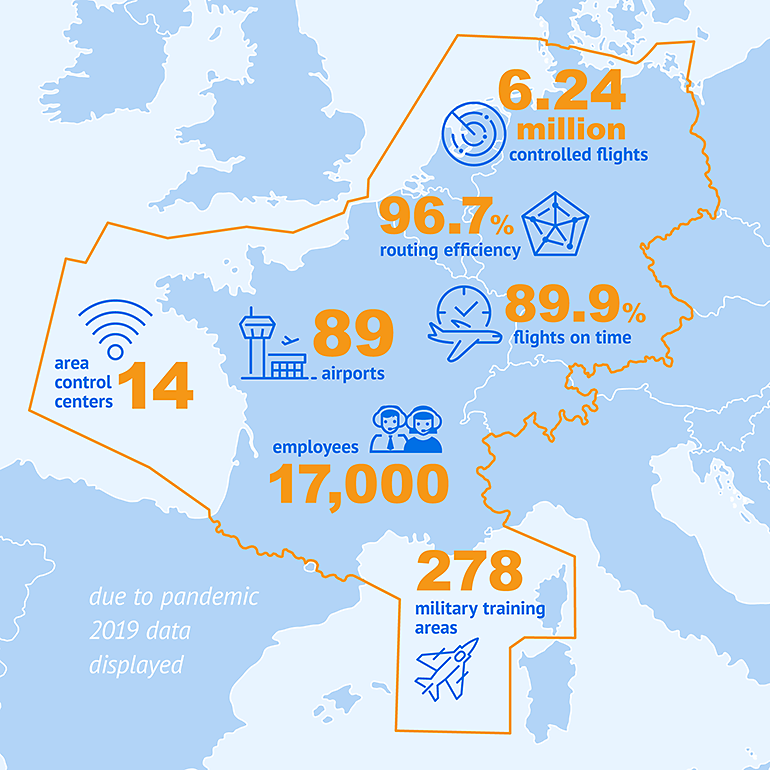Common goals
Since June 2013, the Functional Airspace Block Europe Central, known as FABEC, has officially been in operation. On the basis of a treaty ratified by the six States of Belgium, France, Germany, Luxembourg, the Netherlands and Switzerland, the civil and military air navigation service providers (ANSP) have worked in close cooperation to improve safety, efficiency and cost-effectiveness, to ensure punctual flights by providing the capacity required, to reduce emissions and to offer more direct routes to airlines.
Reliable services
FABEC cooperation strengthened during COVID-19 in response to the unprecedented traffic downturn. Despite diminished financial and staff resources, critical airspace infrastructure remained open day and night to ensure essential medical supplies, cargo and repatriation flights arrived safely at their destination. FABEC took the opportunity to accelerate cross-border initiatives including more direct routings and greater data exchange between adjacent centres.
- 6.24 million controlled flights per year (2019), equaling 55 percent of all European air traffic
- Approximately 17,000 civil employees, including 5,400 air traffic controllers, plus military staff
- 14 area control centres in Amsterdam, Bordeaux, Bremen, Brest, Brussels, Geneva, Karlsruhe, Langen, Maastricht, Marseille, Munich, Paris, Reims, Zurich, and military air traffic control units
- 1.7 million square km: 1,780 km from north to south and 1,835 km from east to west
- 89 airports including 4 major intercontinental hub airports (Amsterdam, Paris, Frankfurt, Munich)
- 278 military training areas
- 16 cross-border areas








